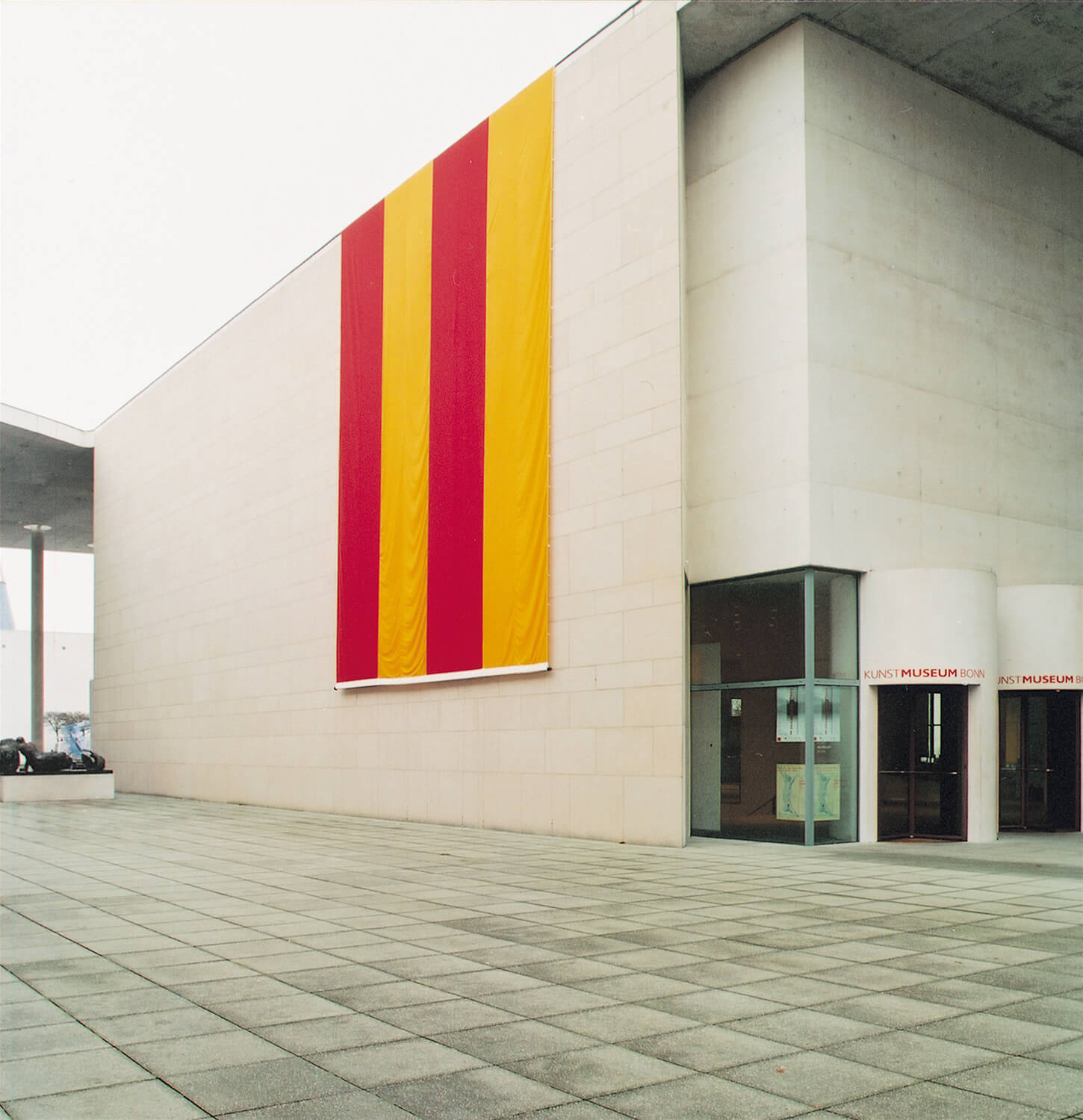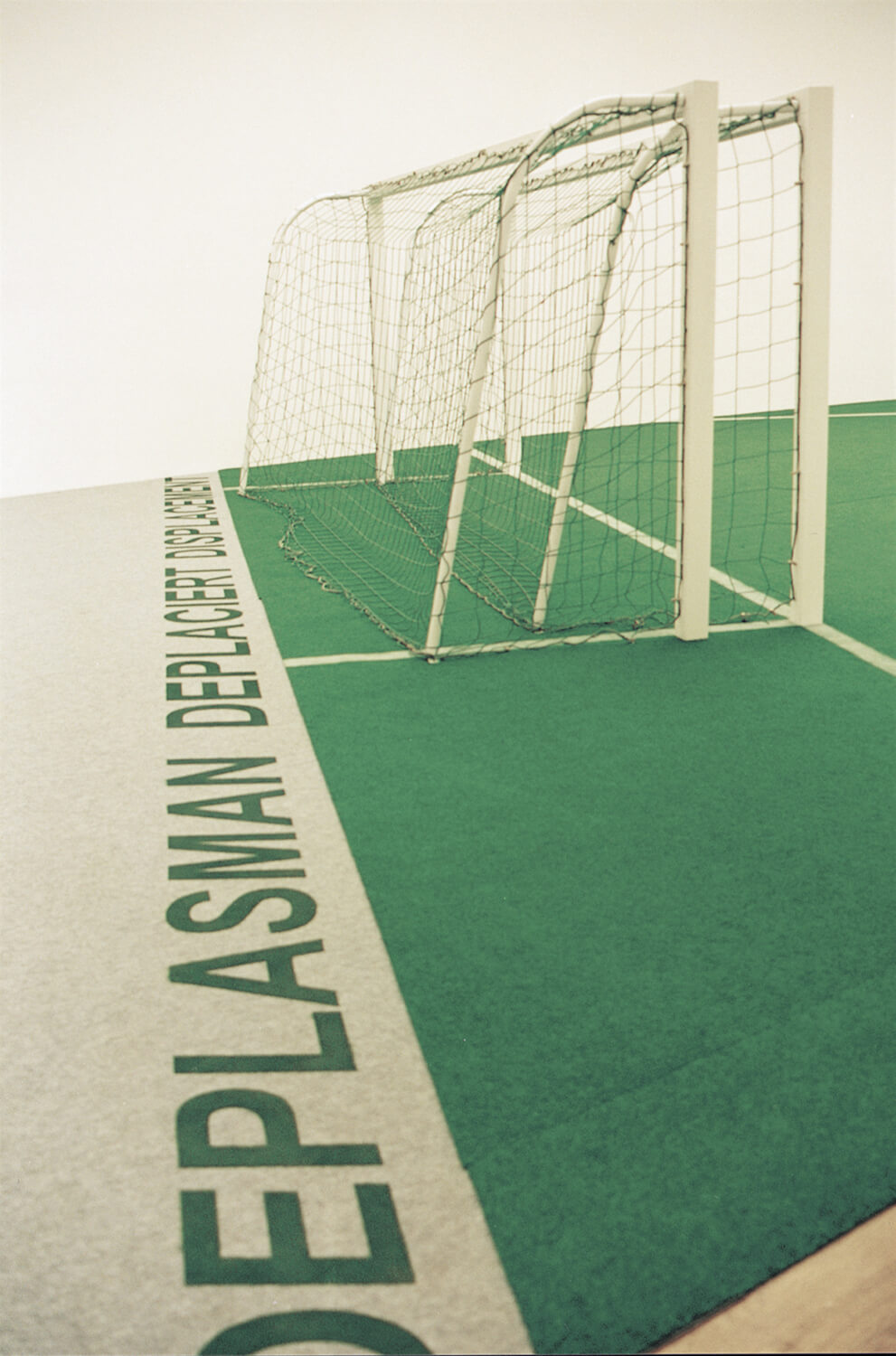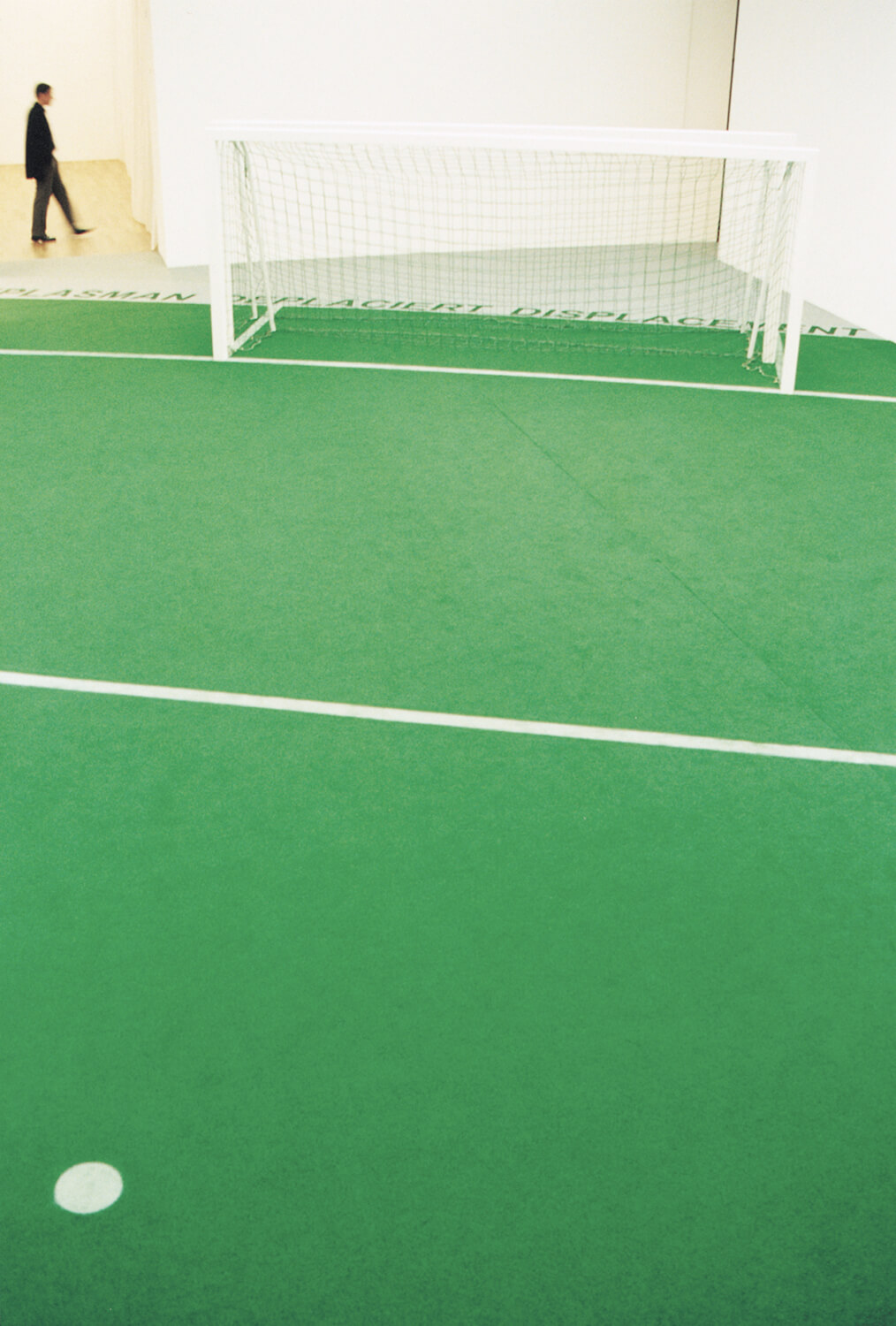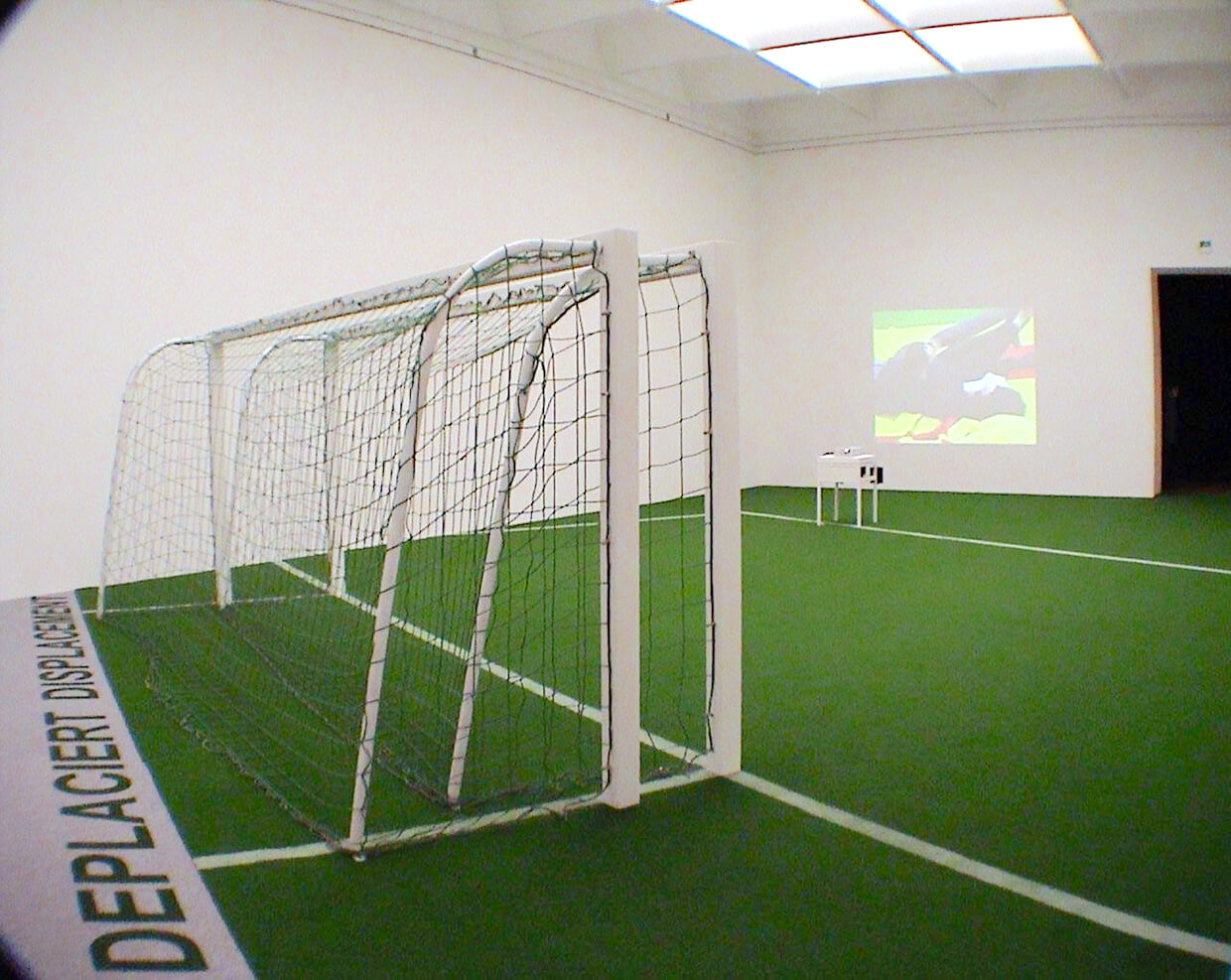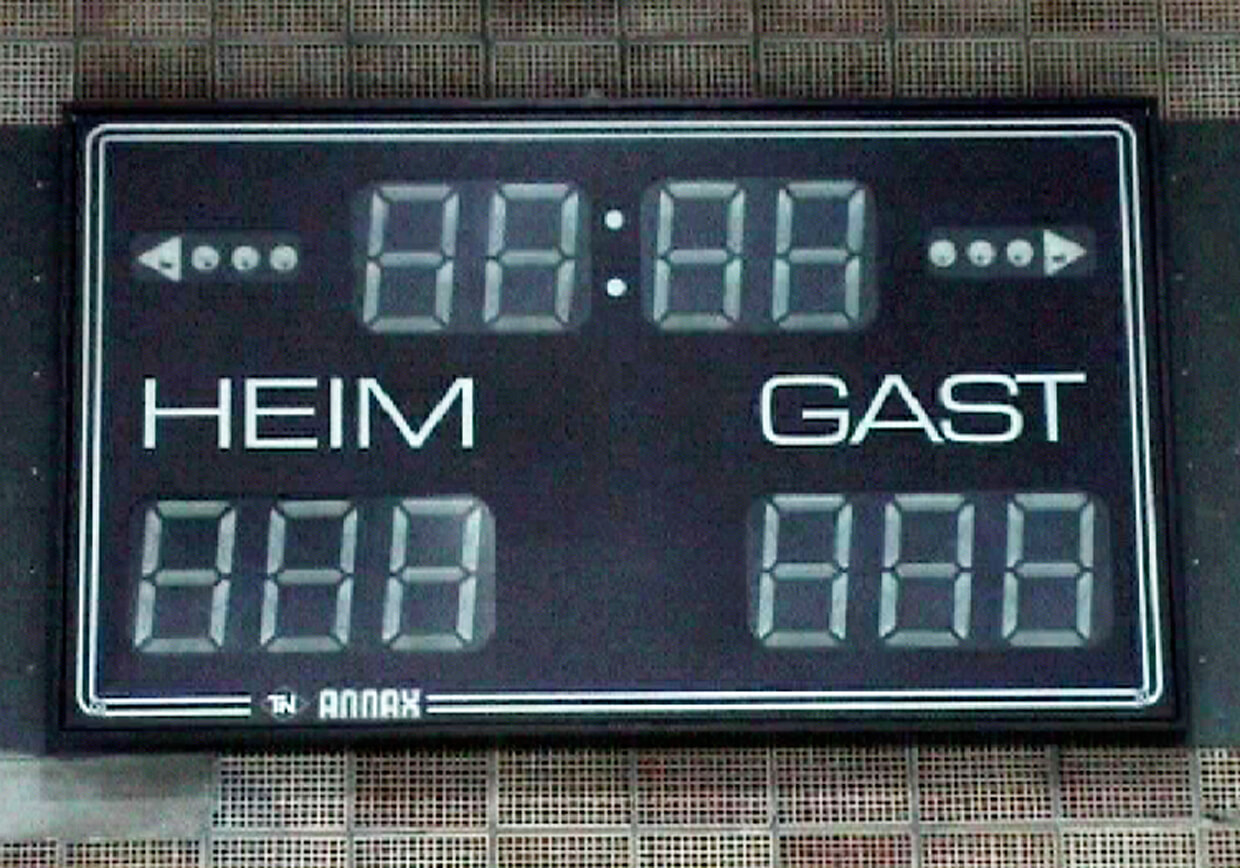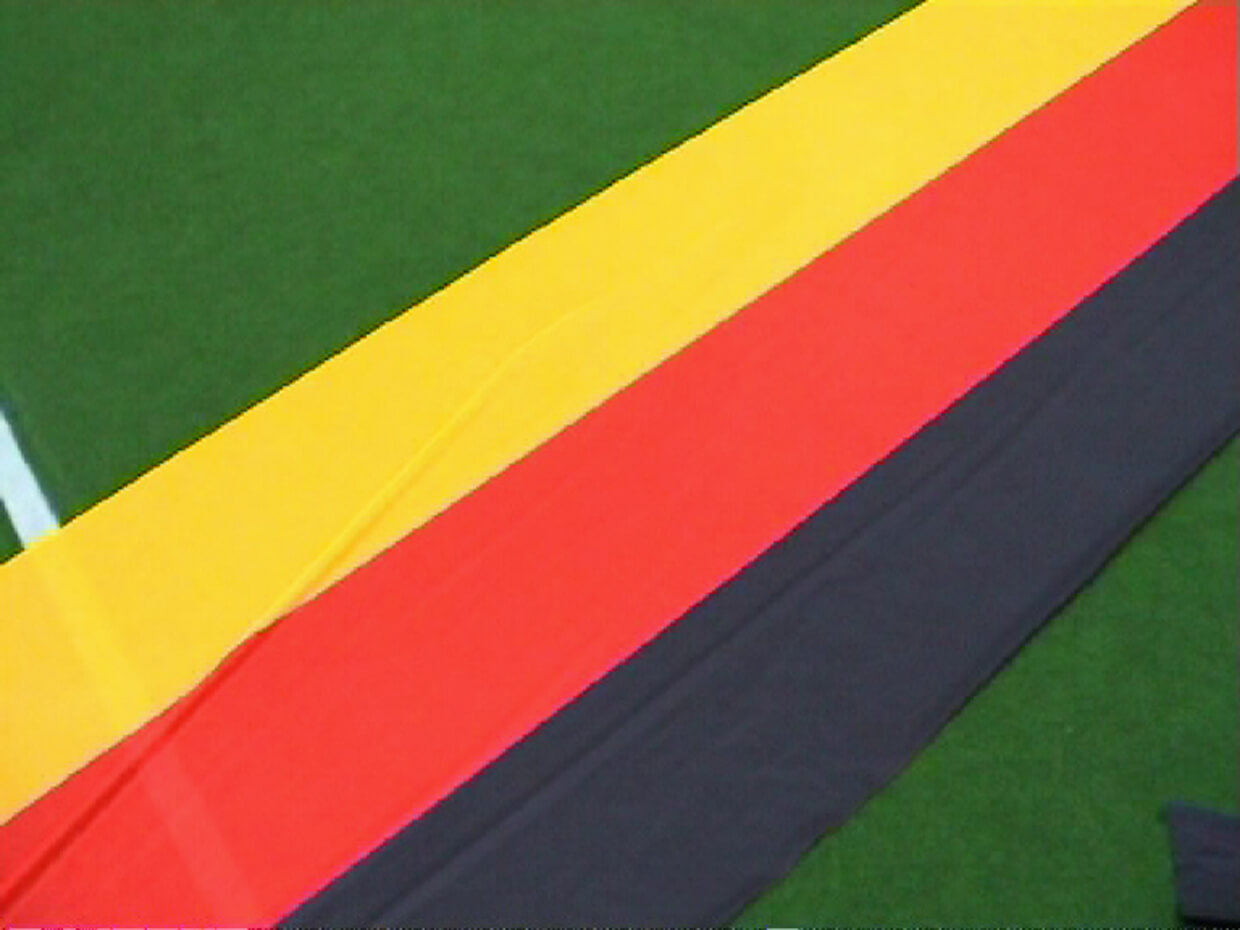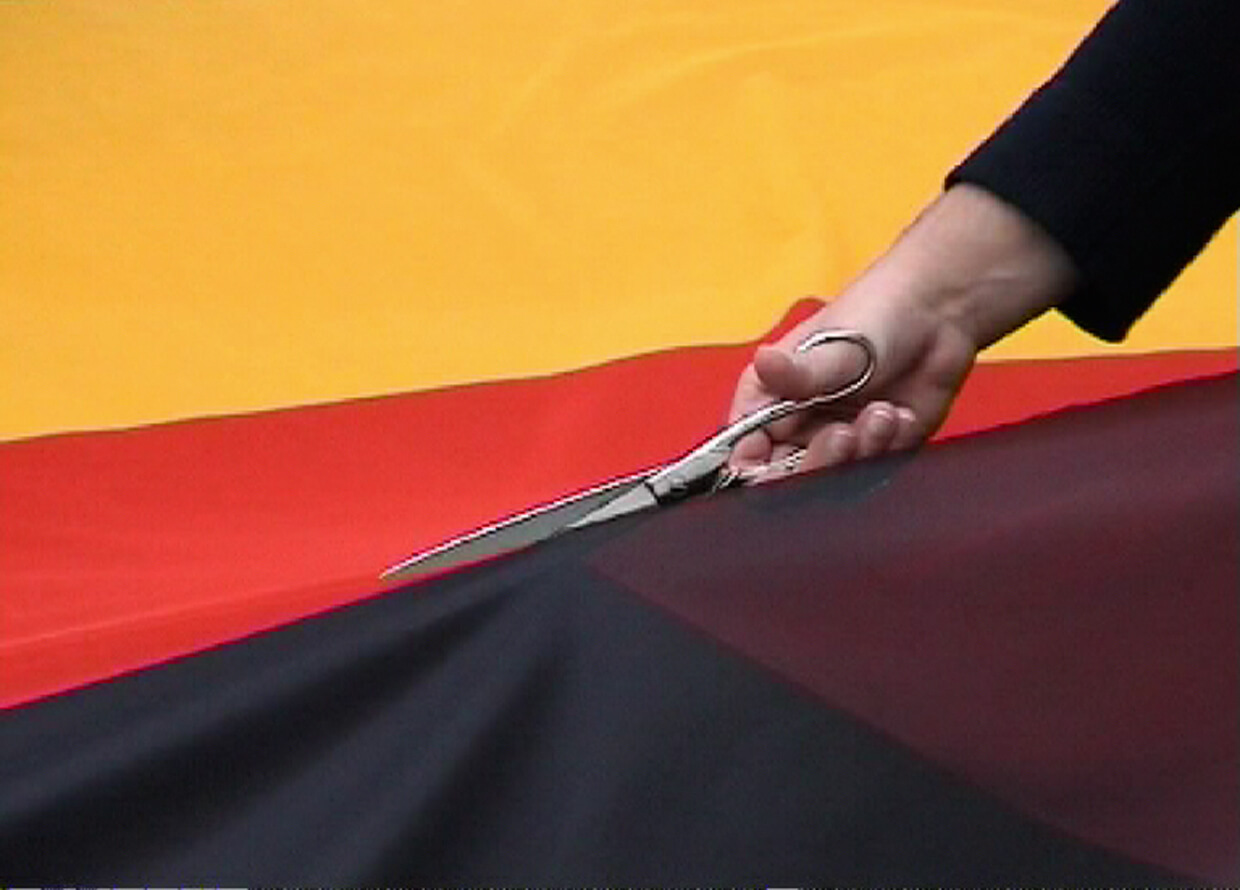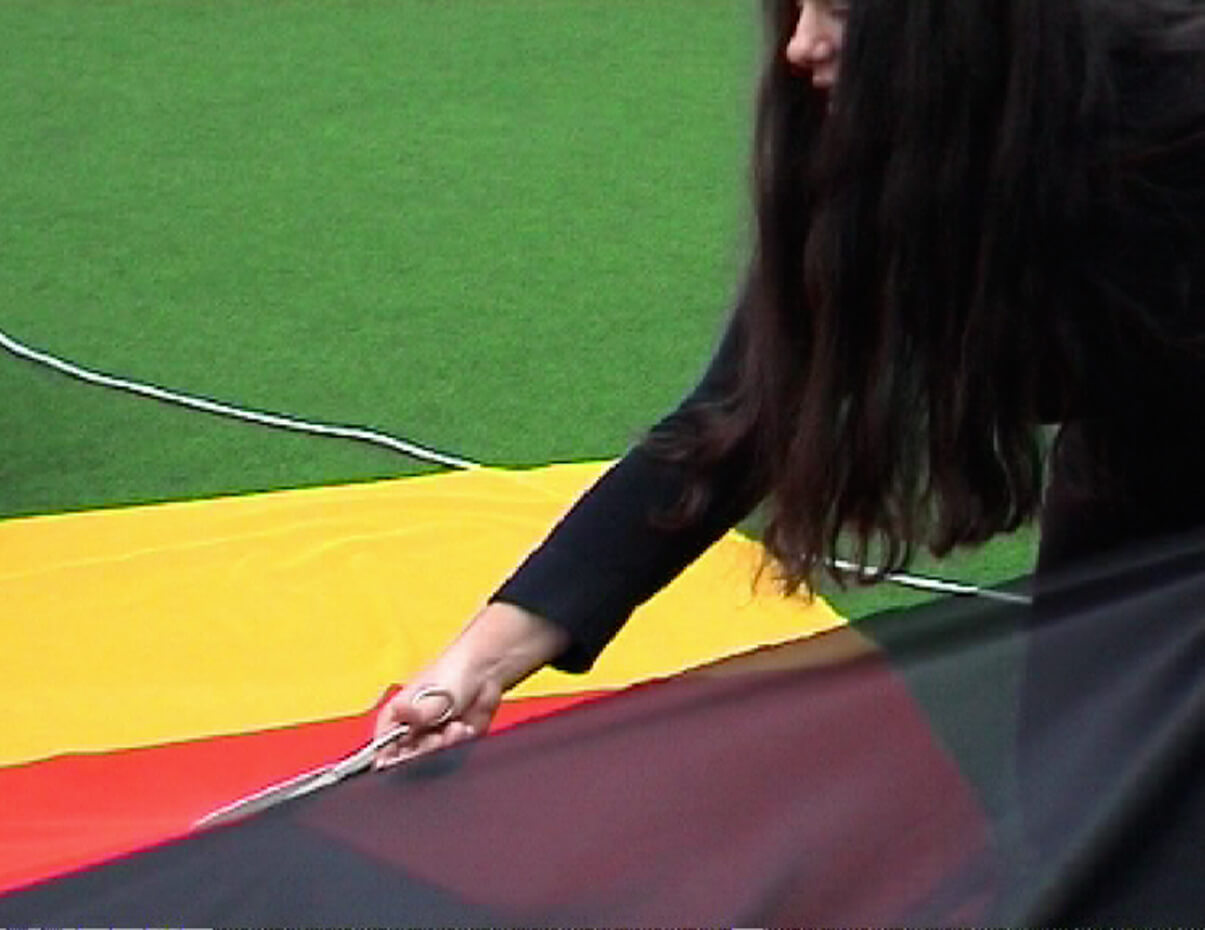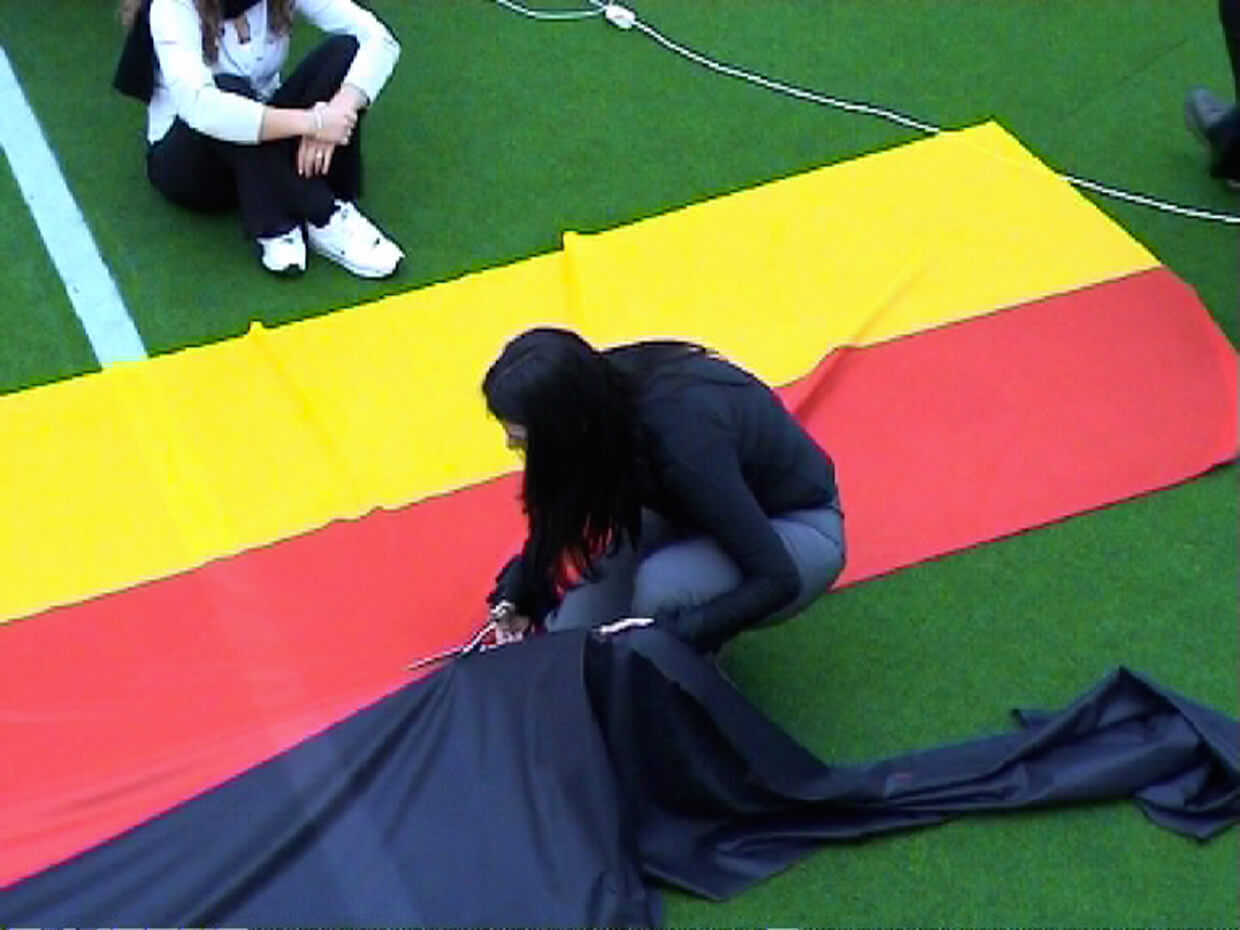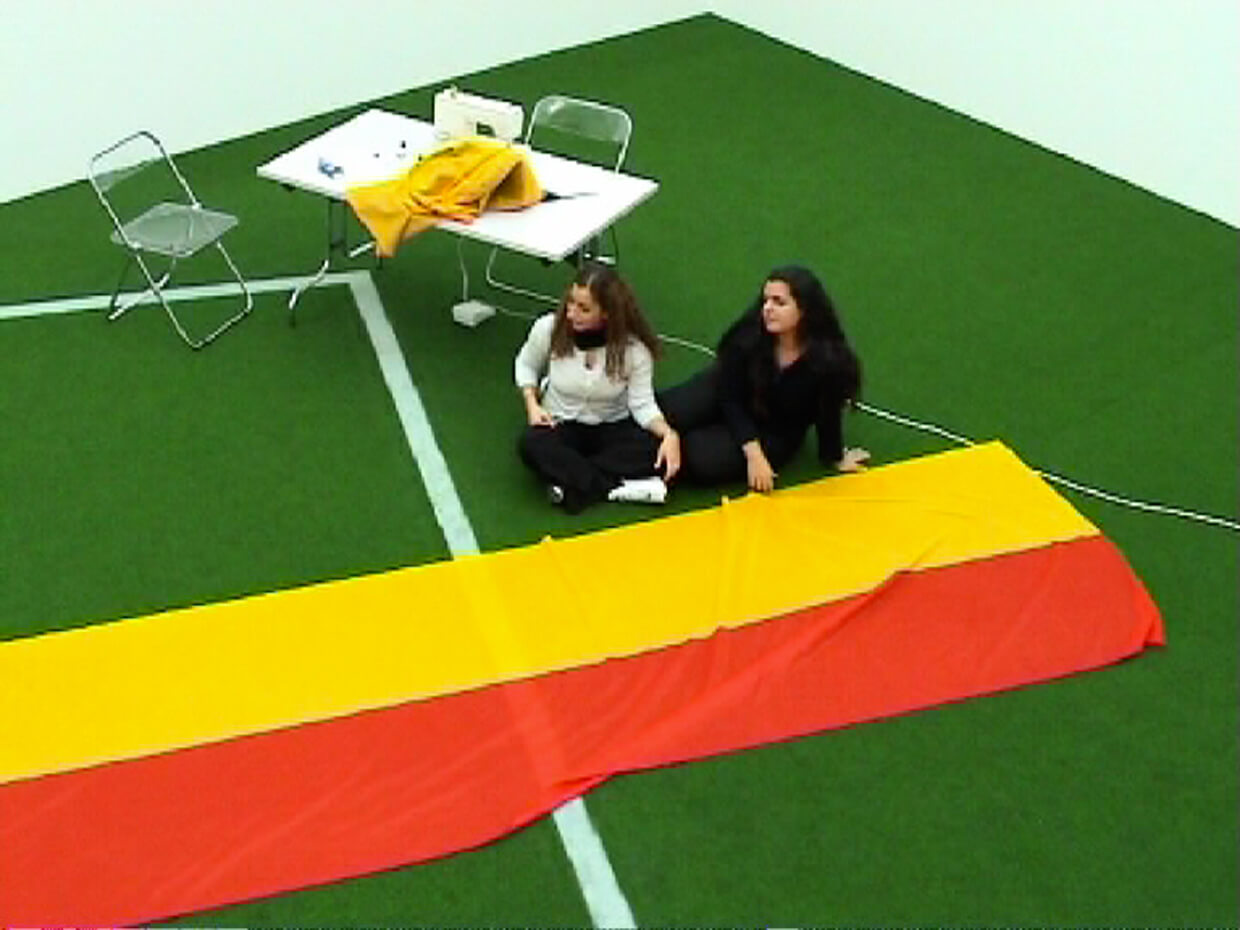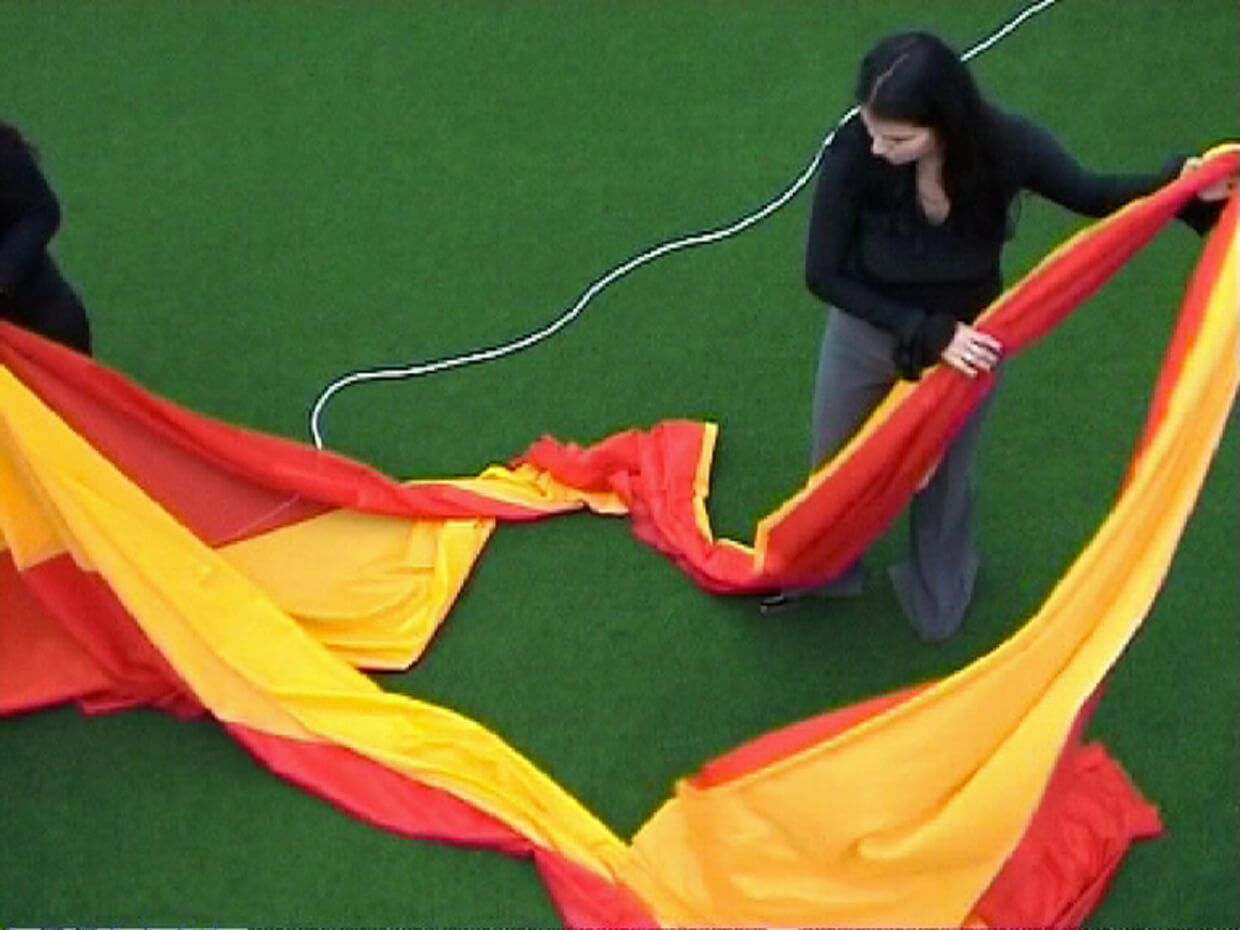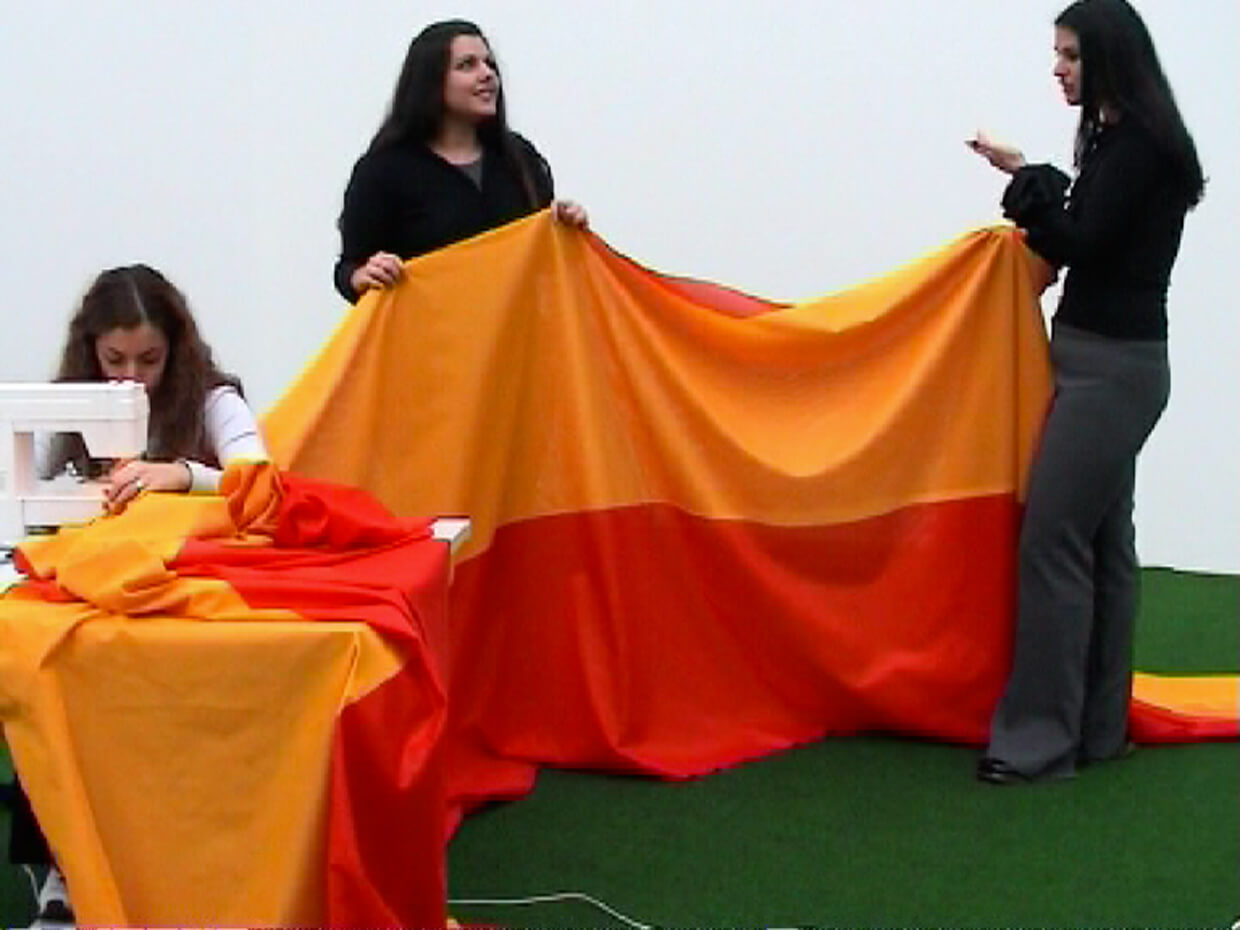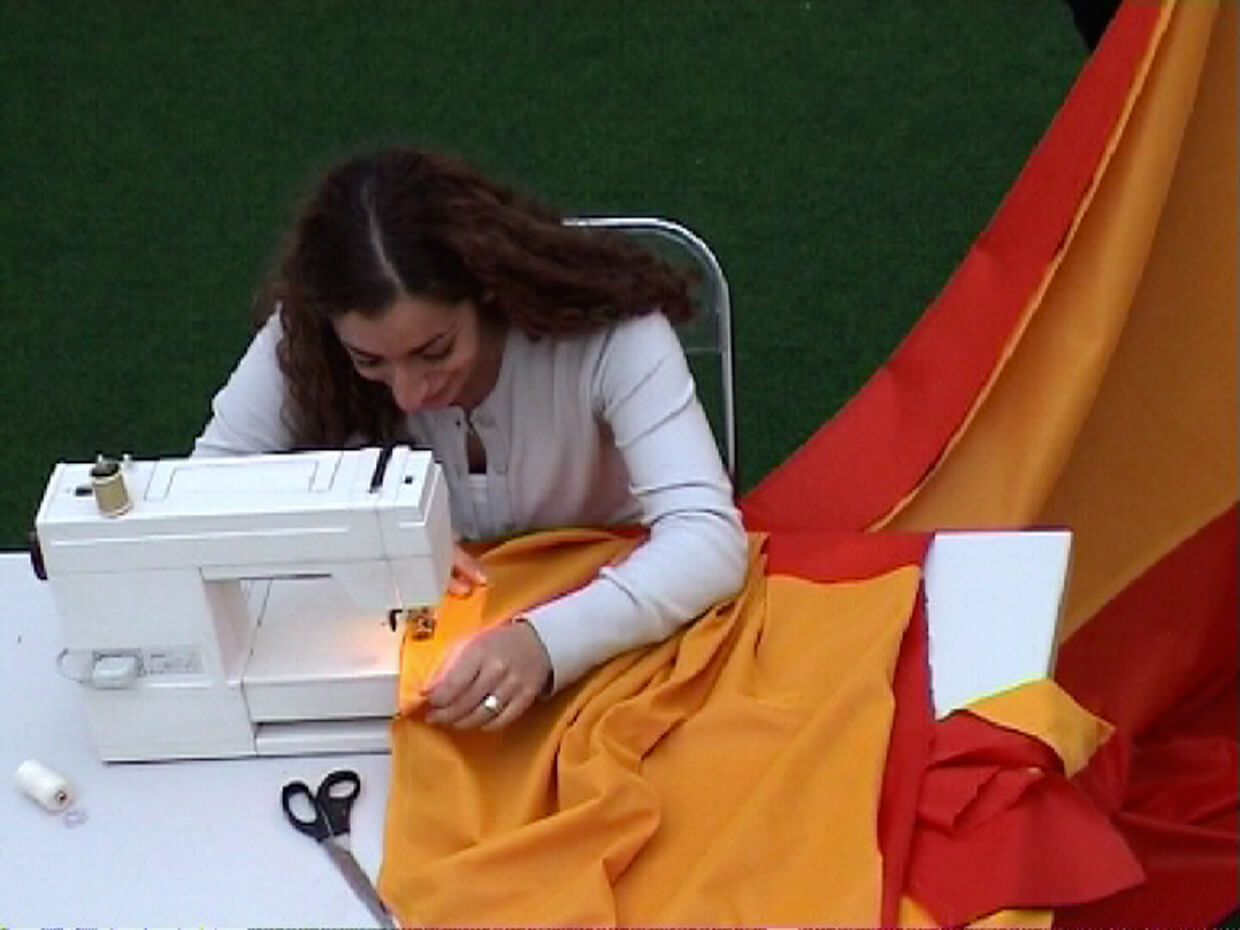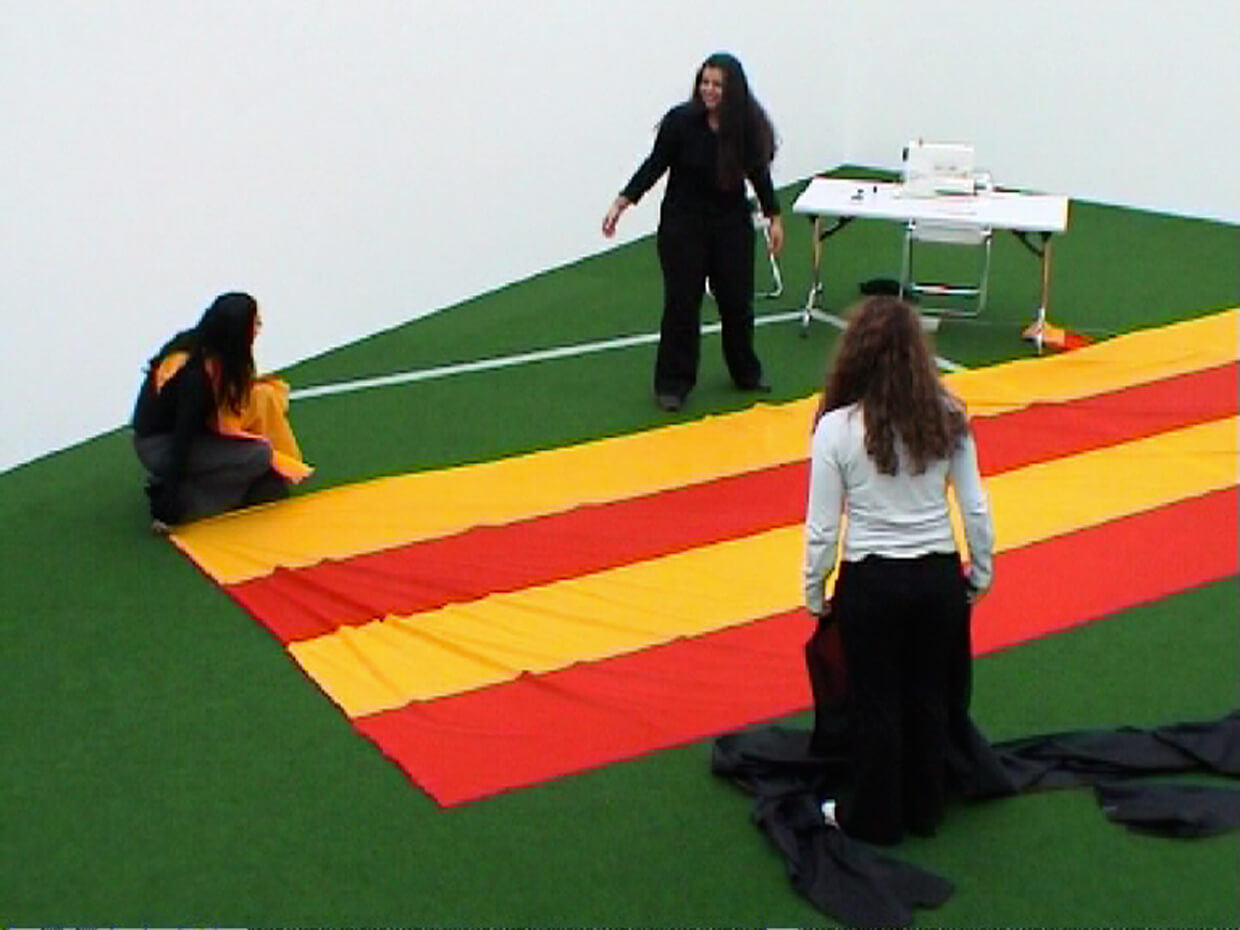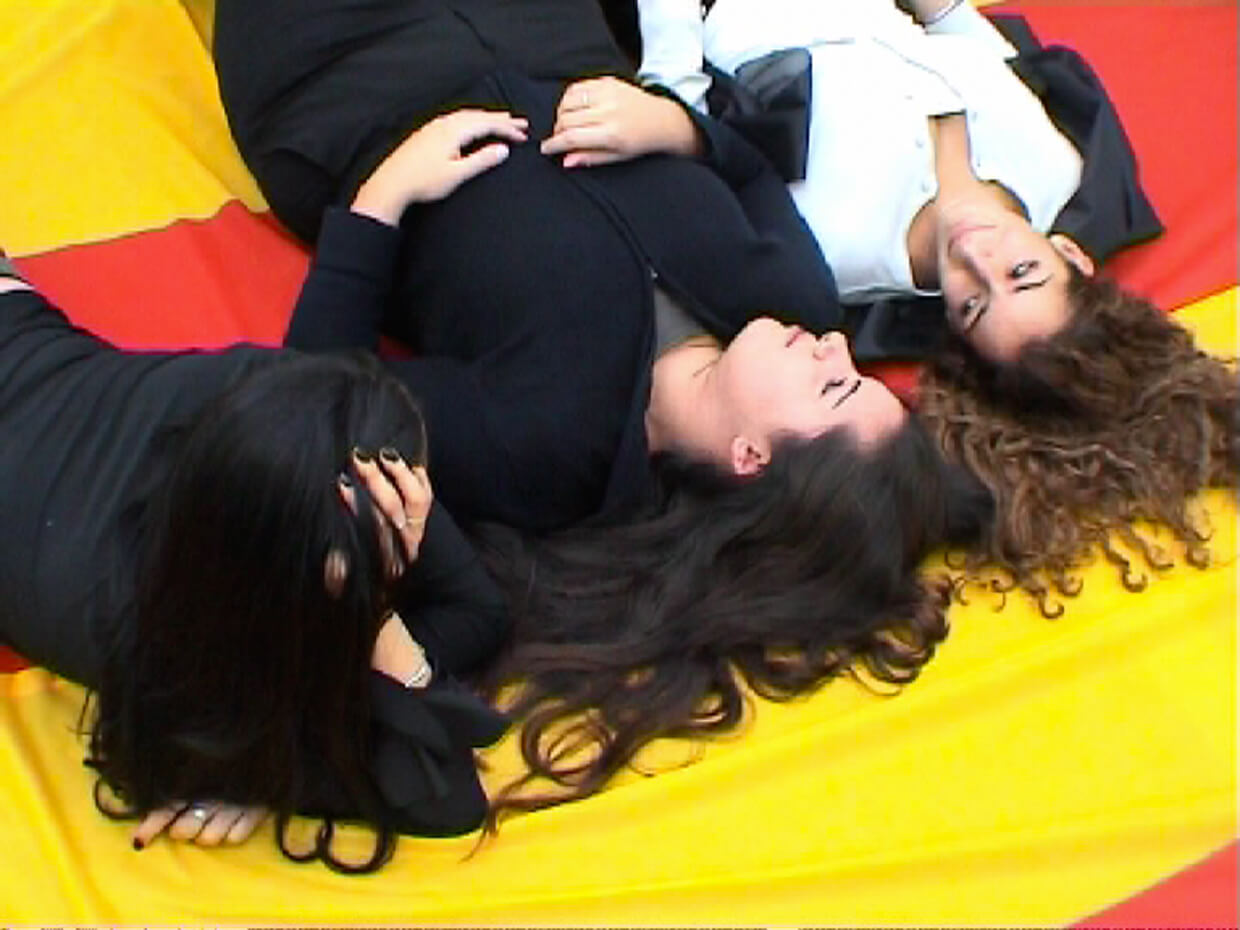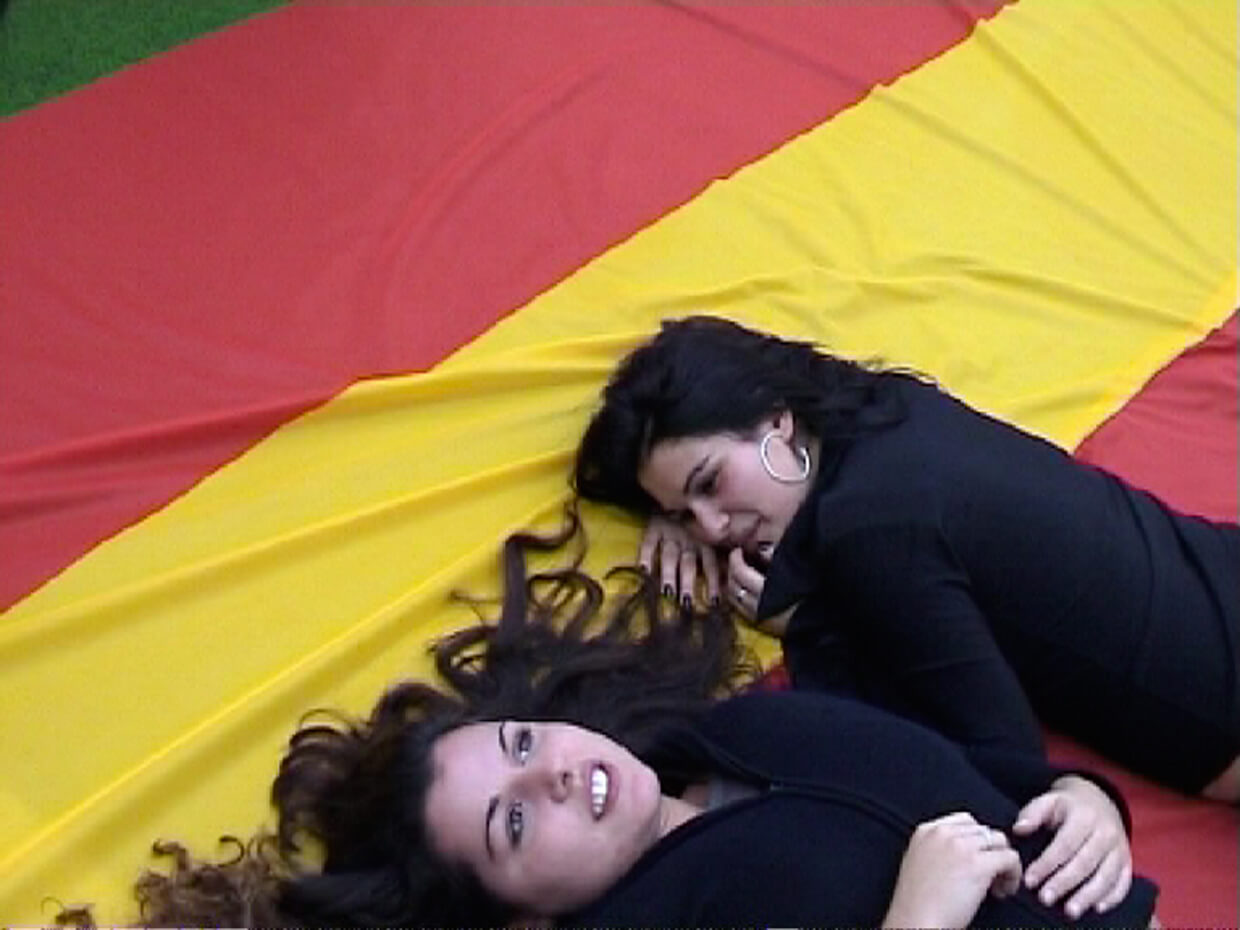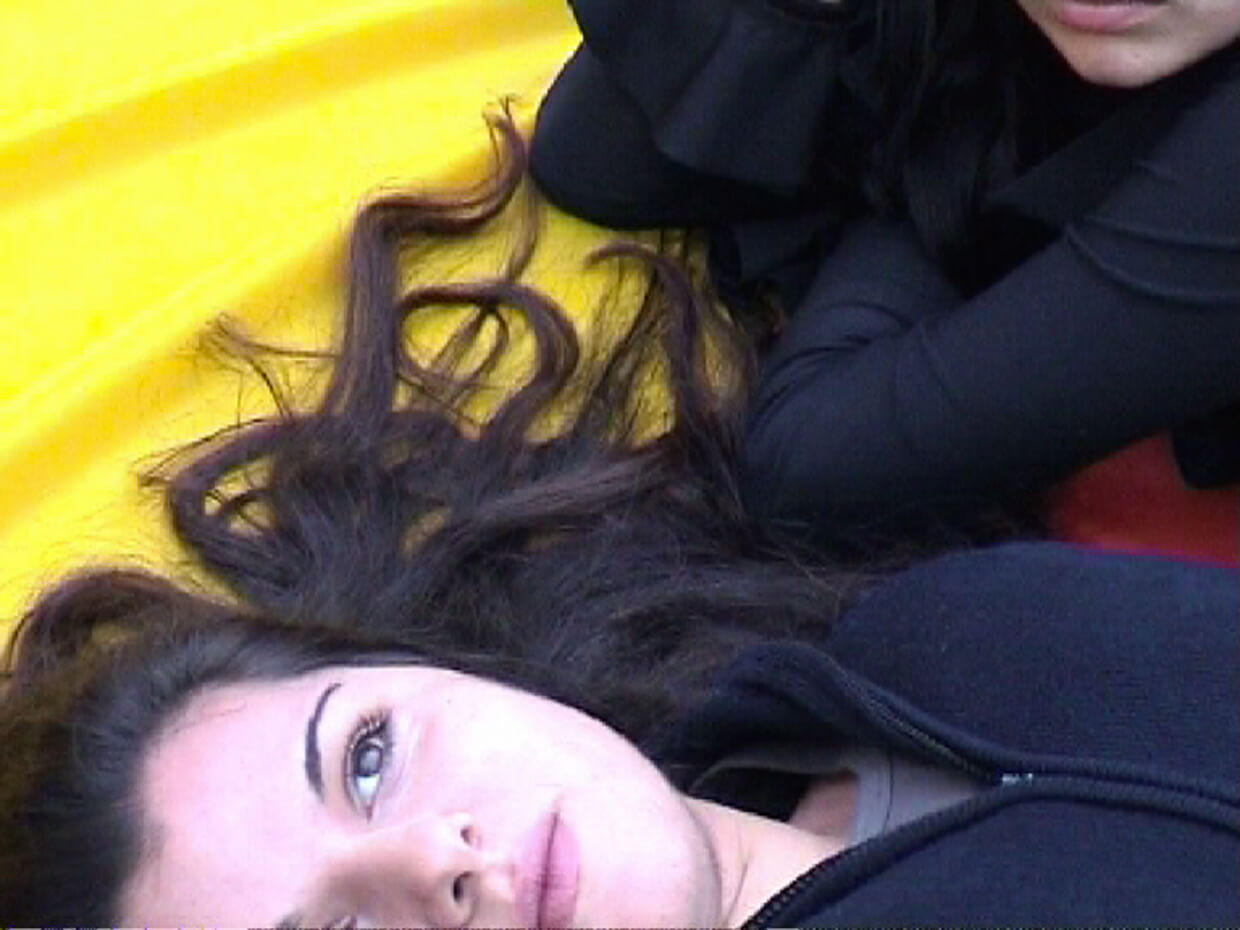2001, Performans, Video installation, 4’24”, sound Developed for the exhibition "Under the Sign of the City" at Kunstmuseum Bonn, Germany
| / |
Three girls with Mediterranean appearance are working on two large German flags. First, they cut the black stripes of these two flags and then stitch together the remaining stripes of yellow and red. So, the German national flag is being transformed into the flag of the football club Galatasaray Istanbul that has pursued a successful performance in European cups for the last ten years.
People of Turkish origin living in various European cities have used these occasions as means to reinstate their national identity and self-esteem. Yet, football arenas can easily become the sites of re-production of cultural conflicts, and in Ersen’s project a general sense of cultural difference was paired, to a certain extent, with this darker side of contestation. The two parallel goalposts inserted onto the floor that was transformed into a green football pitch, resonated the hostile and abusive rhetoric of those arenas. Three words in three languages that share the Latin same origin were inscribed on the pitch:“deplasman” (Turkish word for playing in the opponent’s ground in sports), “deplaziert”, and “displacement”.
In the video, the audience could notice that the slit versions of Germans flags were being brought back to their proper, tricolor origin through the appearances of the three Mediterranean (perhaps Turkish) girls. The visual challenge to the German national unity in the cutting act, the violence inherent in it, is softened when the girls lie down on the red and yellow flag. Their dark skin, hair and cloths integrate the missing black stripe back into the flag. Thus, far from being a threatening foreign, marginal element within the society, they claim their constitutive role in the production of the contemporary German national identity. Tired of being on the threshold, in-between and hybrid; these people claim to be a part of the “inside”. They don’t want to be detained in a penalty zone anymore, but be allowed to play on the whole pitch freely.
